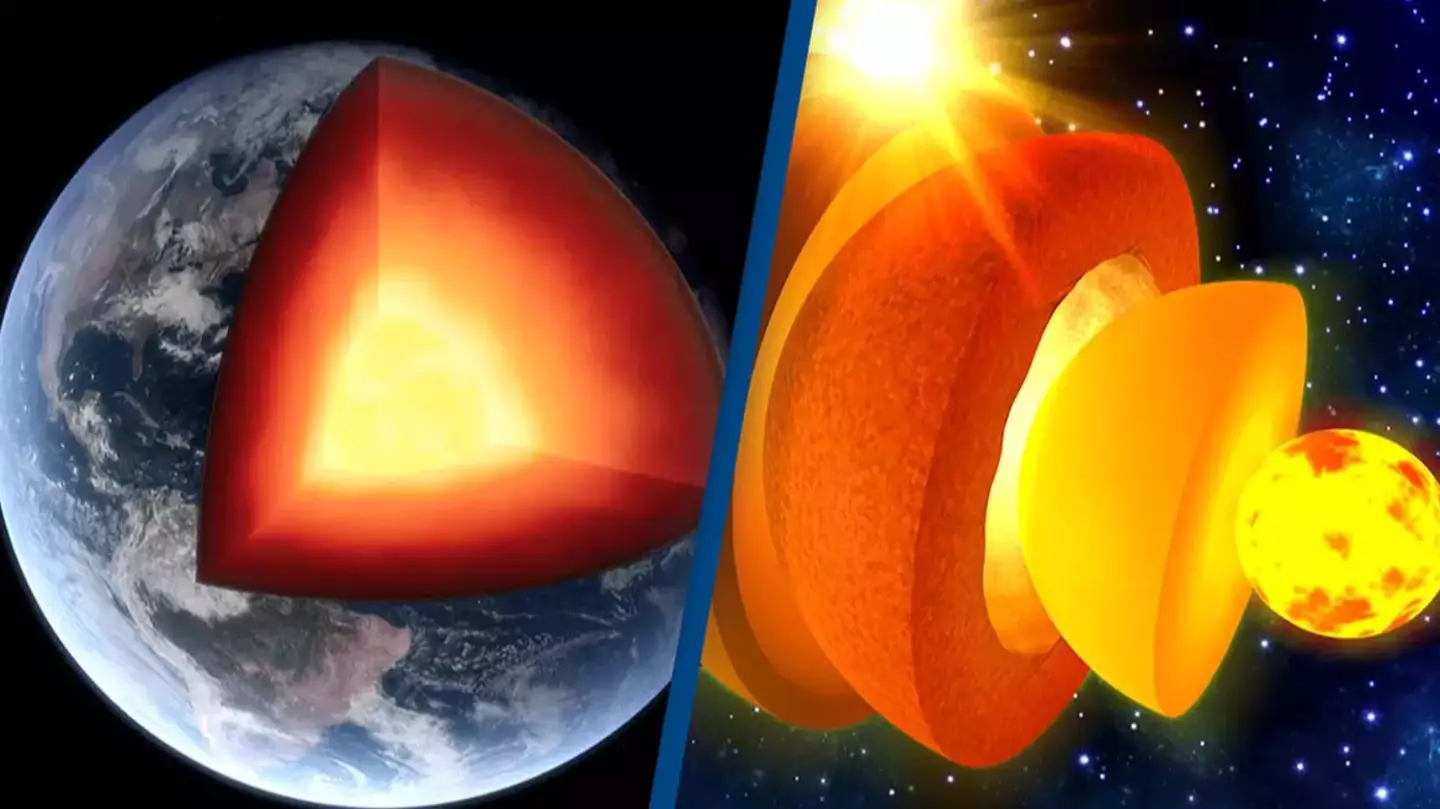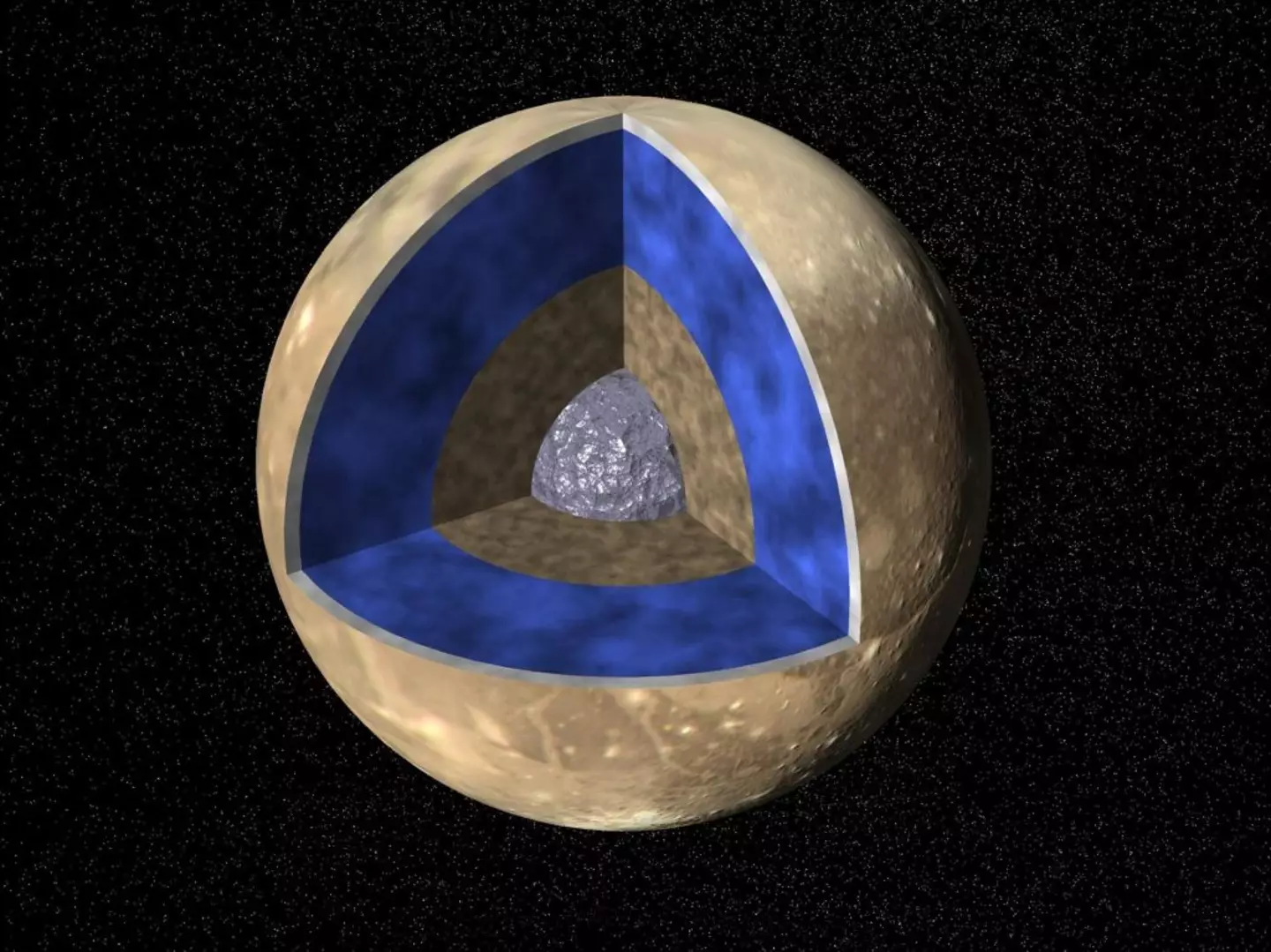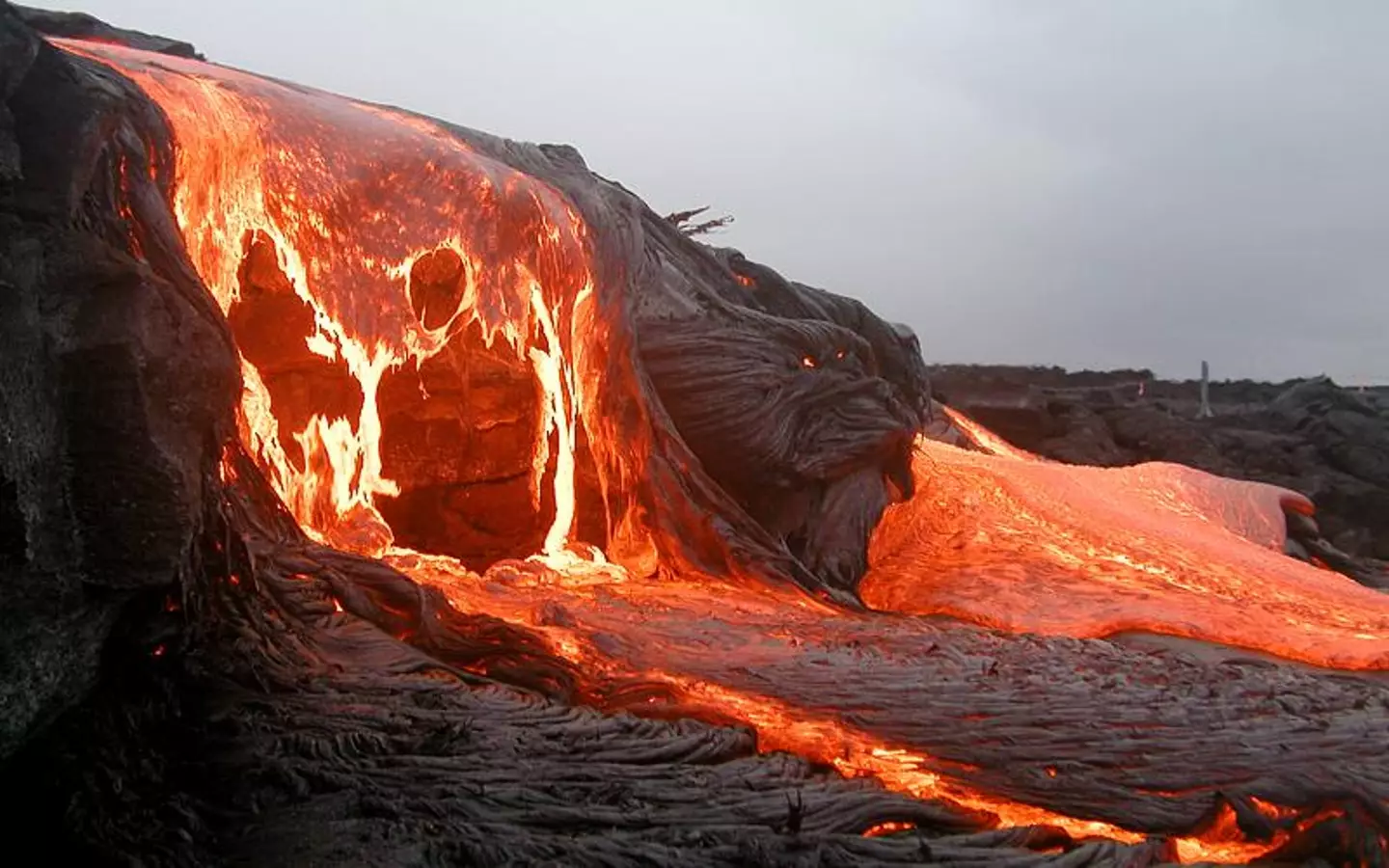
It's fair to say that despite having lived here our whole lives, many of us know startlingly little about the planet we call home.
But while we might not necessarily understand planet Earth and how we came to be here, a group of scientists are continuing to put in the work so that we can know as much as possible about our world.
Recently, however, scientists have made a rather alarming discovery, which has brought up more questions than answers about our homeland.
Advert
Researchers and geochemists have been looking closely at planet Earth's general makeup, by testing ancient lava in a bid to learn more about the universe, and their findings have the science community baffled.

Their research, which was published in scientific journal Nature last year, has revealed the possibility that the Earth's core might be leaking.
The scientists found an unusually high amount of helium-3 while investigating 62-million-year-old lava flowing on Baffin Island in Canada’s Arctic Archipelago.
Advert
Confused? Well, in simple terms it means that the Earth's core could well be leaking into this matter, which has never been seen before, as scientists previously believed it was impossible, because the core was thought to have been geochemically isolated from the outer layers.
That has now all changed, thanks to the research by geochemists from Woods Hole Oceanographic Institution and California Institute of Technology.
Taking a closer look at readings from Baffin Island’s historic ancient lava flows, they found the highest ratios of helium-3, helium-4 and a third isotope ever found in terrestrial volcanic rocks.

When helium-3 rises, it soon goes into the atmosphere and into space, so, if it's found on the surface now, it’s likely that it came out of the core.
Advert
Forrest Horton, a geochemist at Woods Hole Oceanographic Institution, went on to explain to VICE: “We know very little about Earth's core, other than that it exists. This makes studying the core both intriguing and frustrating.”
"Traditionally, the core and outer layers of our planet (mantle and crust) were presumed to be geochemically isolated (i.e., material does not transfer back and forth) Increasingly, scientists have been challenging this notion.”
But the ‘exciting’ findings have suggested that the Earth’s core and inner layers hold a lot more information than once thought.
Though Horton believes that research is far from over and that what his team found has created a whole new dynamic.
Advert
He said: “In many ways, our study raises more questions than it answers, so there is a lot of work to do.”
